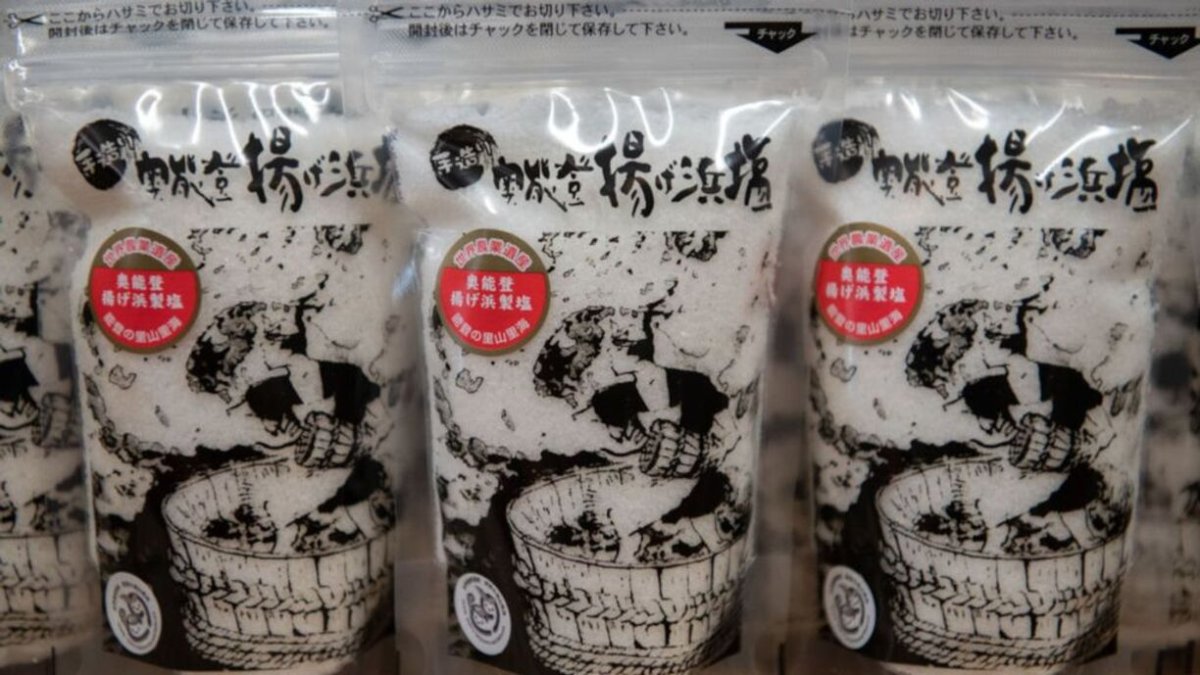Sprinkling salt substitutes on meals could add years to your life, according to new research, by addressing the so-called "silent killer."
A global study published in the journal Heart showed they lower risks of premature death from cardiovascular disease by 13 percent.
Salt substitutes also reduce heart attacks and strokes by 11 percent. Eating too much salt can trigger clots that cut off blood supply to major organs. The replacements taste just like the real thing, and are already available in supermarkets. They contain added potassium and less sodium—protecting against high blood pressure, said the international team of researchers.
Co-author author Maoyi Tian, of Harbin Medical University in China, said: "The magnitude of the cardiovascular protection afforded is likely to be determined by the magnitude of the fall in blood pressure.

"Blood pressure-mediated beneficial effects of salt substitute on clinical outcomes appear likely to be accrued across a broad range of populations without adverse effects.
"These findings are unlikely to reflect the play of chance and support the adoption of salt substitutes in clinical practice and public health policy as a strategy to reduce dietary sodium intake, increase dietary potassium intake, lower blood pressure and prevent major cardiovascular events."
They are based on results pooled from 21 clinical trials involving nearly 30,000 people in Europe, the Western Pacific Region, the Americas, and South East Asia.
Salt substitutes lowered blood pressure—in all participants. Blood pressure describes the strength with which blood pushes on the sides of arteries.
Overall, "systolic" and "diastolic" readings dropped by 4.61 and 1.61 mmHg (millimeters of mercury), respectively. The former reflects the heart's force when pumping and the latter when it rests between beats. Major organs are vulnerable to stress if either is too high.

Each 10 percent lower proportion of sodium chloride was linked to a 1.53 and 0.95 mmHg greater fall in systolic and diastolic blood pressure, respectively.
More than one in four adults in the U.K., around 14.4 million people, have high blood pressure, according to the authors.
Nearly one out of two adults in the United States has high blood pressure—also known as hypertension—which amounts to 116 million people, according to the federal Department of Health and Human Services. In addition, about one in five American adults (24.3 million people) presenting hypertension are recommended to make lifestyle modifications only to alleviate the condition. This includes weight loss and dietary changes.
Around a third of people are undiagnosed, according to the study's authors.
Tian said: "Excess dietary sodium and insufficient dietary potassium are both well-established causes of high blood pressure.
"Randomized trials demonstrate that reduced dietary sodium consumption or potassium supplementation lowers blood pressure.
"Sodium-reduced, potassium-enriched salt substitutes, in which a proportion of the sodium chloride in regular salt is replaced with potassium chloride, combine these blood pressure-lowering effects."
Reductions were consistent irrespective of geography, age, sex, history of high blood pressure, body mass index, and baseline levels of blood pressure and urinary sodium and potassium.

There was no evidence that higher dietary potassium was associated with any health harms.
Standard table sea or rock salt is virtually 100 percent sodium chloride. The main ingredient in salt substitutes such as Morton's salt substitute is potassium chloride. In Britain, LoSalt is a branded salt substitute available in supermarkets.
The salty-tasting mineral is lacking in many people's diets. One in six Brits have intakes of potassium chloride that put them at risk of deficiency. Potassium is needed for healthy muscles and nerves—and for normal blood pressure. Studies have previously linked the supplements to lower blood pressure.
A quarter teaspoon serving of Lo Salt contains 450 mg potassium—23 percent of an adult's daily amount. Salt substitutes can sometimes give a slightly metallic taste to foods. Some users find that by adding an acid, such as lemon juice, less salt may be required in food.
American and British diets are high in processed food that already contain high levels of salt, a habit which has prompted calls for the food industry to switch to low-sodium salt as well.
"Since the benefits of salt substitutes on clinical outcomes are mediated primarily by blood pressure reduction, comparing the effects of salt substitution on blood pressure will provide insight into the likelihood that effects on clinical outcomes will be replicated in other populations," said Tian.
"Accordingly, this systematic review summarized the effects of salt substitute on blood pressure and clinical outcomes for all available trials and assessed the constancy of the findings across diverse population groups and geographies," Tian added.
Cardiovascular disease is the world's number one killer, claiming around 18 million lives annually. Heart and circulatory conditions, including stroke, are responsible for a quarter of all deaths in the United Kingdom, more than 160,000 each year.
According to the Centers for Disease Control: "About 697,000 people in the United States died from heart disease in 2020—that's one in every five deaths. Heart disease cost the United States about $229 billion each year from 2017 to 2018. This includes the cost of health care services, medicines, and lost productivity due to death."
Produced in association with SWNS.
This story was provided to Newsweek by Zenger News.
Uncommon Knowledge
Newsweek is committed to challenging conventional wisdom and finding connections in the search for common ground.
Newsweek is committed to challenging conventional wisdom and finding connections in the search for common ground.





